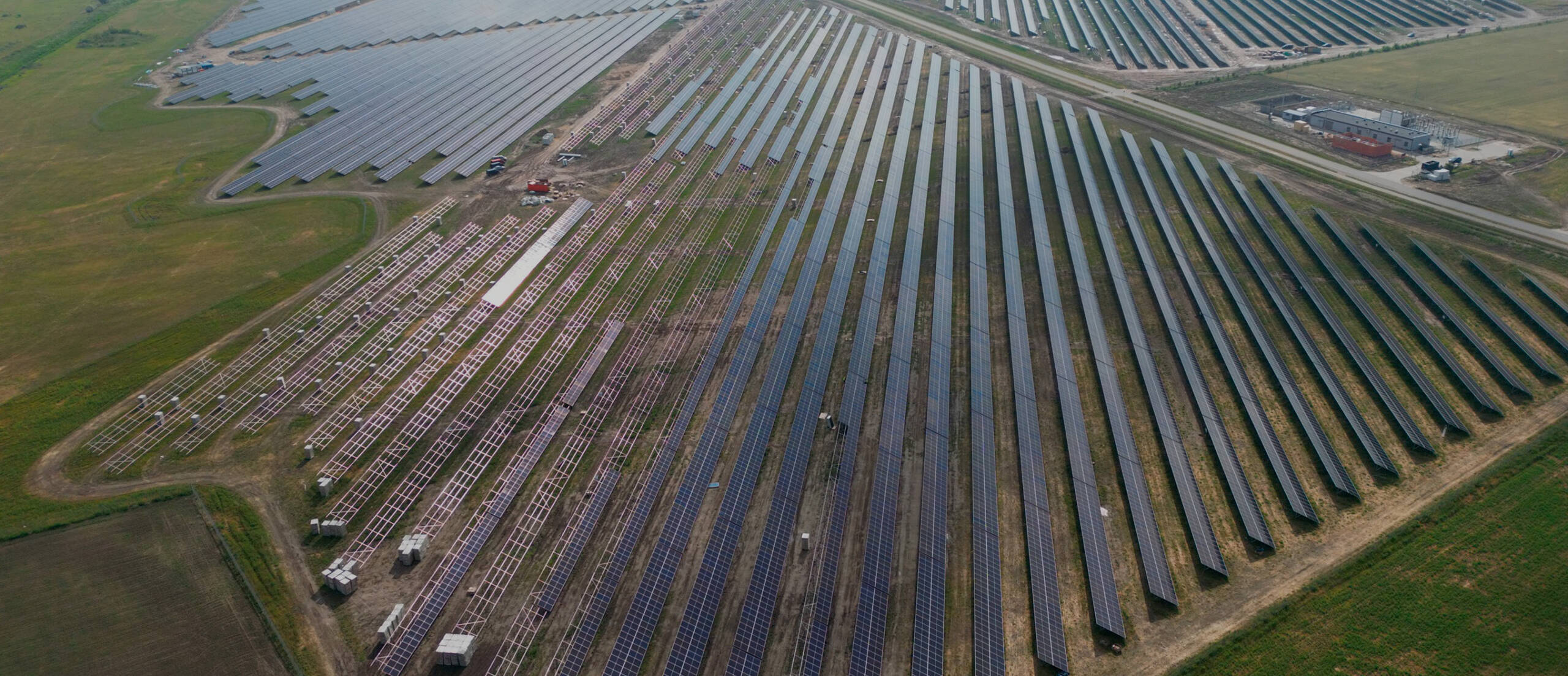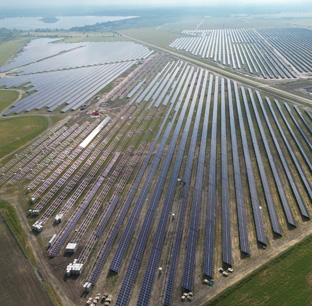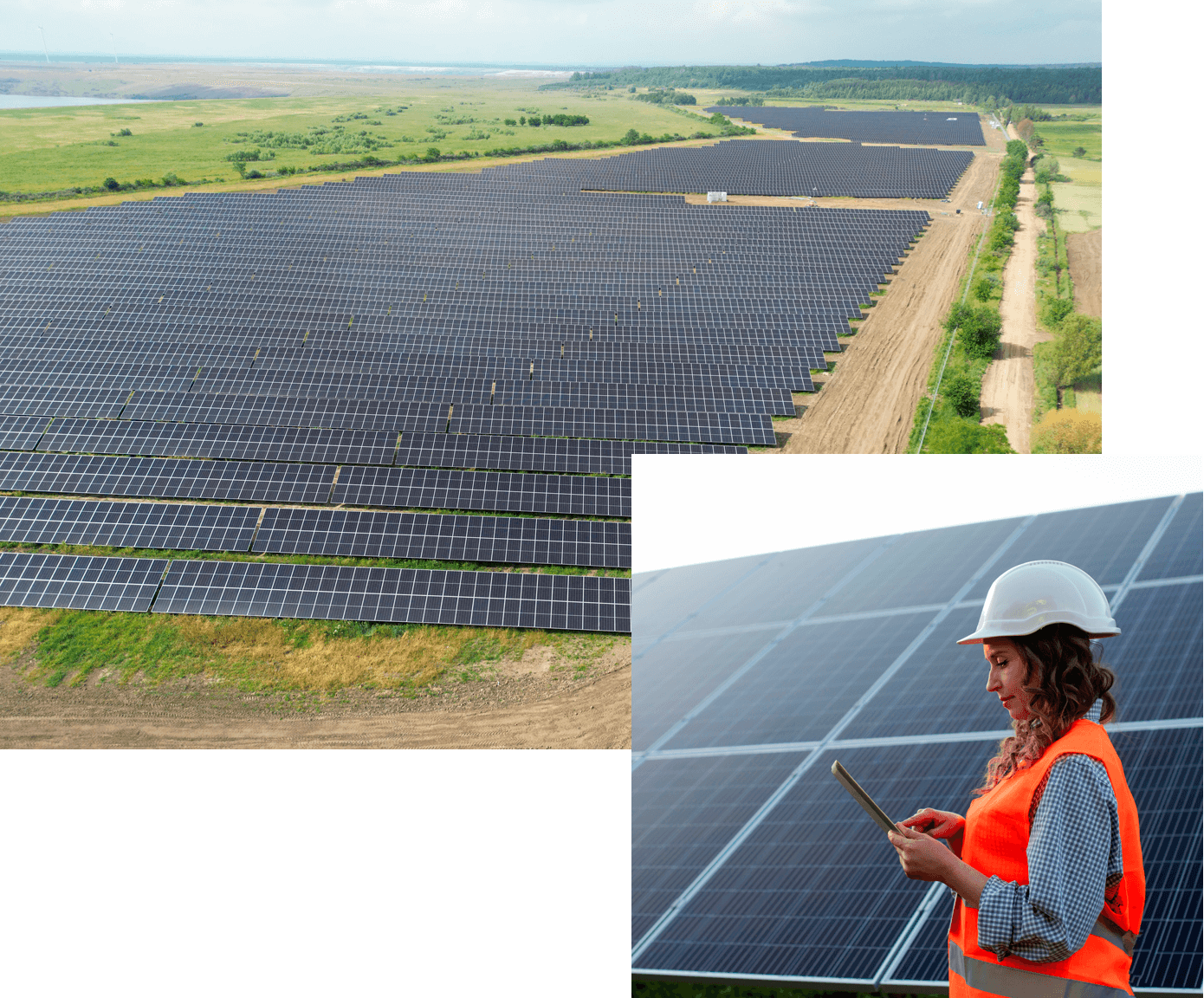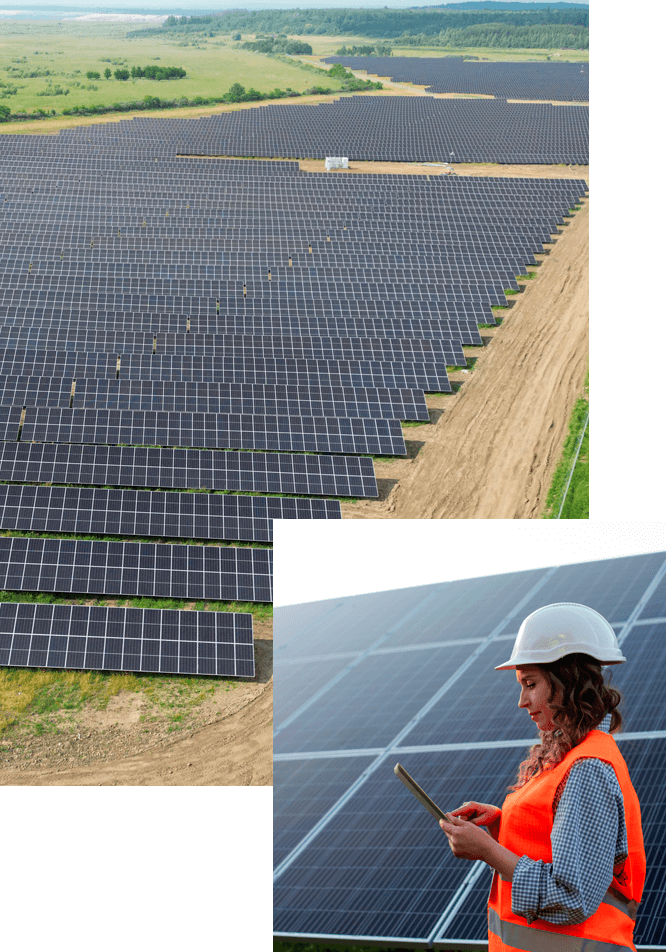Challenge
The construction of the Przykona and Przykona2 wind farms presented a number of challenges:
- Revitalization of post-mining areas – soil preparation and stabilization over an area of 270 hectares required specialized geotechnical work, as well as recovery and cleanup of the area after lignite mining.
- Logistics and assembly – transporting hundreds of thousands of PV modules and support structures to the extensive wind farm area, coordinated within limited weather windows, using dedicated vehicles and heavy equipment.
- Grid integration – construction of the transformer station and transmission lines required coordination with the local distribution system operator and obtaining grid connection permits for a capacity exceeding 200 MW.
- Permits and social acceptance – obtaining all environmental and location decisions, including environmental impact reports, conducted in broad dialogue with local governments, local communities and nature conservation organizations.
Our work
Ayesa Polska provided comprehensive investor supervision for both phases, including:
- Verification of detailed designs and technical documentation;
- quality control of the installation of nearly 380,000 photovoltaic panels;
- supervision of the construction of cable and connection infrastructure;
- monitoring the progress of construction and logistics;
- assessing compliance with occupational health and safety standards and environmental requirements;
- and maintaining ongoing communication with the investor and local stakeholders.
Our team ensured timely schedule completion while maintaining the highest quality standards and full financial and environmental transparency.
Added value
The transformation of a degraded former lignite mine site into a modern solar energy production center is an excellent example of green landscape revitalization. The integrated Przykona photovoltaic farm, with a total capacity of 240MWp, is one of the largest investments of its kind in Poland.
The installation delivers approximately 264GWh of clean energy annually, reducing CO₂ emissions by over 250,000 tons and significantly reducing the local community's dependence on fossil fuels.
The additional phase – Przykona 2 (40MWp) – is a natural continuation of the investment, strengthening its environmental and economic impact on the region. This project contributes to increasing the share of renewable energy in the national energy mix and achieving strategic goals related to climate neutrality.



